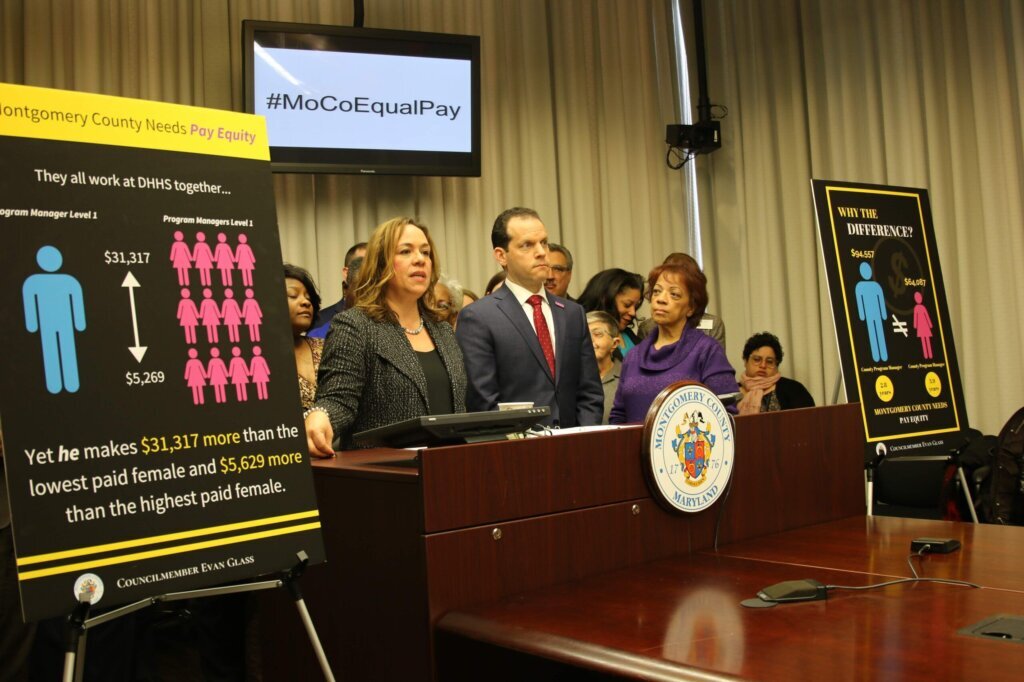This article was republished with permission from WTOP’s news partners at Maryland Matters. Sign up for Maryland Matters’ free email subscription today.

This content was republished with permission from WTOP’s news partners at Maryland Matters. Sign up for Maryland Matters’ free email subscription today.
Montgomery County political insiders always watch closely to see who finishes first in the Democratic primary for the four at-large County Council seats.
In 1998, then-Councilmember Ike Leggett, seeking his fourth term, finished first by an overwhelming margin. Eight years later, he was elected county executive.
Marc Elrich, the current county executive, finished first in the at-large primaries in 2010 and 2014 before winning his current job four years later.
But finishing first in those countywide primaries, which have myriad and often confusing political crosscurrents, isn’t always a recipe for greater electoral success.
Then-Councilmember Steve Silverman finished first in 2002 but lost badly to Leggett in the primary for county executive four years later. Then-Councilmember George Leventhal finished first in 2006, but when he ran for county executive a dozen years later, he finished fifth in the Democratic primary. Current Councilmember Hans Riemer finished a strong first in the 32-candidate at-large primary four years ago, as the only incumbent on the ballot, but he came in an anemic third in the primary for county executive this year.
“Finishing first at-large in a Democratic primary guarantees nothing,” said Silverman, who is now a lobbyist and political strategist.
Still, when Councilmember Evan Glass turned out to be the leader in this year’s eight-way Democratic primary for the four at-large council seats, people took notice. Glass’ 88,301 raw votes were the most ever for an at-large candidate in the Democratic primary – and put him more than 8,000 votes ahead of the No. 2 finisher, Councilmember Will Jawando.
Glass shrugs off the political significance.
“I’ll leave that to others,” he said in a recent interview.
Still, the top vote-getter designation confers a certain unspoken status on whomever gets it. And for Glass, the timing couldn’t be better: He’s poised to play an even bigger role in county government, as the next council president, at a time when the council is going to grow and change thanks to legislation he sponsored to expand the council, which was eventually approved by voters in 2020.
Glass is currently vice president of the nine-member council – with four members elected countywide and five representing individual districts. The incoming council will have 11 members – with two new districts added to the mix.
As a result, the council will have six new members, and assuming all the Democrats win their elections this fall, all six newcomers will be women – a significant development considering that for the last four years, Councilmember Nancy Navarro (D) has been the only woman.
“I’m tremendously excited about the new council and having new faces,” Glass said. Of the women who are expected to ascend to the office, he observed, “They will bring a new sense of energy and style that will serve Montgomery County residents well. Montgomery County is changing and this council is going to be more reflective of the county – and that’s something for residents to be proud of.”
The 11 councilmembers will have disparate styles, ideologies and political agendas, and it isn’t quite clear what their alliances and allegiances will look like when they take office in December. Montgomery County is coming off a closely divided primary that saw business interests plow millions of dollars into races, with mixed success – Elrich prevailed narrowly and is headed to a second term, despite a significant amount of institutional and well-funded opposition.
Colleagues and associates describe Glass as well-equipped to guide the council through its changes and potential philosophical fractures. He’s genuinely progressive on social issues, but has worked with an array of groups, including the business community, in an attempt to forge a just, vibrant local economy.
“He’s very astute at engaging with community groups and advocates and understanding how county residents view issues,” said Councilmember Andrew Friedson (D), who, like Glass, will be entering his second term.
Others describe Glass, a former journalist with CNN, as an excellent listener who knows how to get to the heart of issues in conversations with constituents and community leaders.
“He’s very studious. He’s very methodical,” Silverman said. “He’s a reporter who’s turned into a politician. He asks questions in a positive way.”
Part of Glass’ strong showing in the July primary, Silverman added, was a function of him being backed by the gamut of influential interest groups in the county.
“Evan finds himself in an enviable position of being endorsed by everybody,” he said.
Glass, 45, lives in inside-the-Beltway Silver Spring and largely shares a political base with Elrich, though the two don’t agree on every issue. They are also of different generations and worlds apart stylistically. As an at-large member – which Elrich also was – Glass is regularly in touch with the entire county, not just a few discrete neighborhoods. It’s one of the reasons why he sponsored the legislation to expand the council – because residents in communities outside the Beltway regularly complained that they were underrepresented in Rockville.
Even though Elrich spent three terms on the council before being elected county executive, his first term was marked by regular personality and policy clashes with councilmembers. Glass said he hopes to change that dynamic as council president.
“I want to make sure that the councilmembers on the newly enlarged council are able to work together to best serve our residents,” he said. “And we have to work together with the county executive – better than we have in the past four years. And that is on all of us.”
Glass said he hopes to build on “relationships” he has developed during his first term.
“The best way for county government to function is to have direct communication with all stakeholders,” he said. “That means in county government and externally.”
Friedson said the upcoming transition will be new for all council members except for Sidney Katz (D), who is expected to win a third term. Everyone else will be rookies or entering their second term.
“It’s going to be an interesting time for the county council,” Friedson said. “There’s going to be more [political] change in Montgomery County than there’s been maybe in our history.”
Glass said it’s too early to talk about agendas for next year and the full four-year term. Incumbent councilmembers and the other Democratic nominees have to win their races first – though the outcomes do not seem to be in doubt. And then the incoming members will formally vote on the council’s new leadership team, though Glass is widely assumed to have the votes to become president in December.
Glass was elected council vice president by his colleagues this year in part because the other two members who were interested – Jawando and Friedson – were perceived to be too politically ambitious. Not that Glass lacks for ambition. Friends say he is acutely aware that Elrich, who turns 73 just before Election Day, is unlikely to seek a third term in 2026 and they also say he’s watching to see what political dominoes may fall in Maryland over the next few years.
Glass said he expects Elrich’s tiny back-to-back Democratic primary wins – he defeated businessman David Blair by 77 votes in 2018 and then by 32 votes in their rematch this year – will ignite a discussion about whether to bring ranked-choice voting to Montgomery County elections.
Glass said he is supportive of the idea, and will promote it among his colleagues, with the county’s legislative delegation and with the broader General Assembly. Montgomery County, he believes, can be a leader in the state – just as it has been on public financing of local elections.
“If they want to use Montgomery County as the test case, just like public financing, we’ll take that,” he said.







